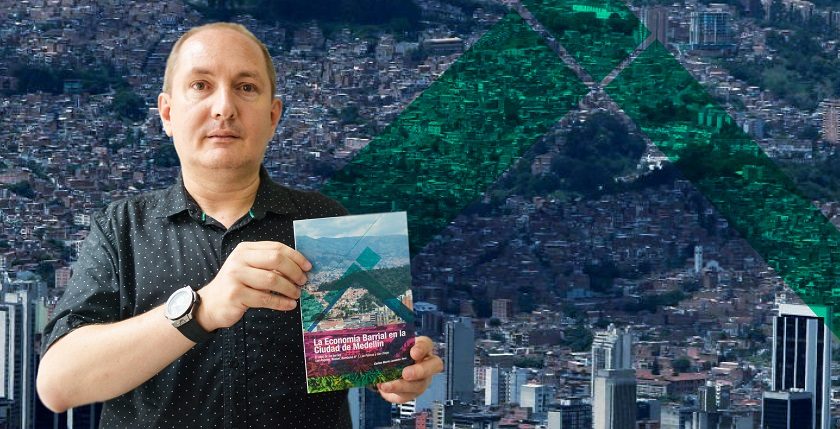Blog
Book “The neighborhood economy in the city of Medellín”
- 15 enero, 2020

The researcher Carlos Mario Londoño Toro of the Sumar Research Group of the María Cano University Foundation presents this book that, within the Institutional Research policies and lines, assumes the study of businesses with social impact, as one of its sub-lines of Study and analysis. Therefore, he ventures into the study and characterization of the popular economy, the dynamics and business history of the Medellín Retail Plaza and reaches a sector, the neighborhood economy “Un Mundo por discover”, in its growth dynamics, business models and organizational, its integration in response to the needs and aspirations of each neighborhood, their cultures, becoming one of the factors of development and growth of each neighborhood community. The neighborhood business is already part of the social and economic network of the communities where they are born, grow and develop.
The shopkeeper a reference of the neighborhood who knows in depth the needs, expectations and aspirations of his clients, the store a meeting place, an imaginative mixture of medium-sized businesses, micro businesses and subsistence, mostly family businesses, where The management is generally inspired by the intuition and common sense of the shopkeeper.
This world, still to be discovered, generates formal and informal employment, responds to the needs of the communities they serve, in addition to being a sector of the municipal economy that contributes to the city’s GDP, in this case in Medellín, object of the study that Here it is presented.
The neighborhood economy in the city of Medellín: the case of the Los Angeles, Boston, Bomboná No. 1, Las Palmas and San Diego neighborhoods, is a research result book that accounts for the business dynamics of these five neighborhoods in the commune 10 from the city of Medellín. The research that supports this research process is developed from 2015, when the SUMAR research group of the María Cano University Foundation sees the need to begin to investigate the operation of small businesses, and specifically businesses located in the geographical environment of the institution; this with the purpose of approaching the community and the businessmen of this sector of the city, knowing their realities, their needs, and being able to provide alternative options for business growth, social development and improvement of the quality of life of these populations from proposed solutions from the academy.
In this book, the teacher and researcher of the SUMAR group, Carlos Mario Londoño Toro, Economist and Master in Organization Management, analyzes the characteristics of small businesses located in the five neighborhoods selected for the study. The study is based on the application of 1574 surveys applied in the neighborhoods: Los Angeles, Boston, Bomboná No 1, Las Palmas and San Diego based on an articulated work between the SUMAR research group and the different Community Action Boards – JAL; These surveys seek to account for the characterization of 19 typologies of these small businesses, based on the identification of their general characteristics, their commercial and financial dynamics, their formality or informality processes, and the socio-demographic characteristics of the microentrepreneurs of these neighborhoods from commune 10 of Medellín.
In the book, in addition to the problematization and methodological guidelines that guided the development of the research, you can find six chapters, where the first of them gives an account of the general characteristics of the neighborhood economy, and specifically in the commune 10 of the Medellin city. The following five chapters present the characterization of small businesses from the different dimensions defined above, a chapter is presented by neighborhood, highlighting the economic vocations of each neighborhood, and the particularities under which the economy of each of the identified neighborhoods operates for the study.
Finally, the book gives an account of the overall conclusions of the study, which were constructed based on the articulation of the particular conclusions obtained in each of the objective neighborhoods of this investigation.
The book closes with a set of conclusions and recommendations, which are expected to be, disseminated and analyzed by the governmental entities of the municipal and local order and of the companies that provide these neighborhood businesses and thus contribute to improving the conditions of business development in the different neighborhoods of the city of Medellín, and other Colombian cities.
Foreword
“LA ECONOMÍA BARRIAL UN MUNDO POR DESCUBRIR”
HUMBERTO SERNA GÓMEZ
PROFESOR TITULAR (r) UNIVERSIDAD DE LOS ANDES
PROFESOR TITULAR INVESTIGADOR FUNDACIÓN UNIVERSITARIA MARÍA CANO
INVESTIGADOR EMÉRITO
LÍDER GRUPO SUMAR
